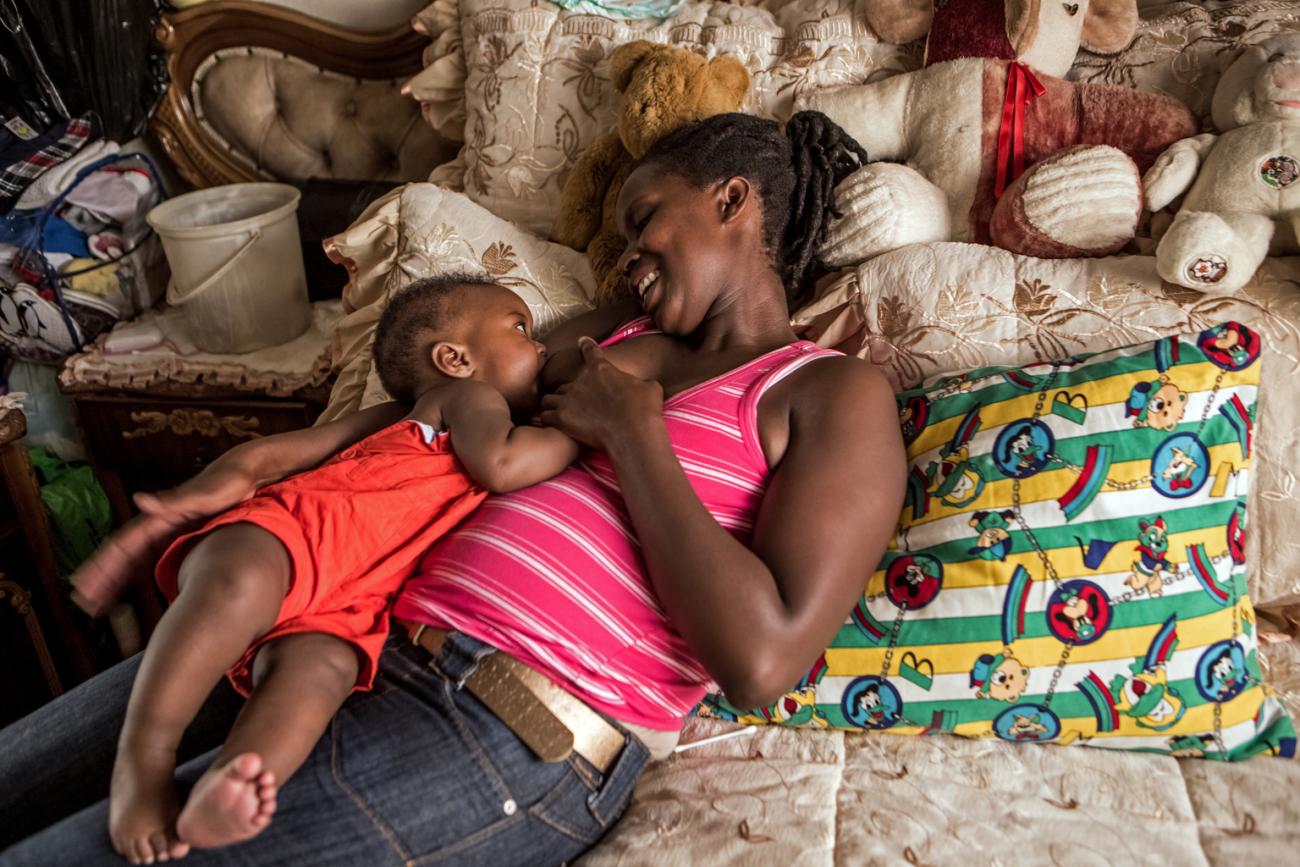Promoting breastfeeding: A shared responsibility - UNICEF

In South Africa and globally, UNICEF has been supporting efforts to protect, promote and support breastfeeding.
Breastfeeding acts as a baby’s first vaccine, providing critical protection from diseases and death. It is a baby’s best source of nutrition, bolstering brain development with lifelong benefits for mother and child.
By Gilbert Tshitaudzi, Nutrition Manager, UNICEF South Africa
World Breastfeeding Week, commemorated annually from 1 to 7 August, is a key opportunity for the United Nations Children’s Fund (UNICEF) and its partners, to highlight the theme for this year, “Protect Breastfeeding: A Shared Responsibility.” Despite evidence of the positive benefits of breastfeeding, South Africa’s exclusive breastfeeding rate stands at approximately 32%, lagging behind the World Health Organization’s global target of 50% which countries should reach by 2025.
Breastfeeding contributes to the survival, health and wellbeing of women, children and the broader society. It gives children the best start in life. It also protects babies from common infectious diseases – which can make the difference between life and death – and boosts children’s immune systems while ensuring that they have the key nutrients they need to grow and develop to their full potential.
There is also vast evidence showing that breastfeeding reduces the risk of obesity and diabetes later in life. In South Africa and globally, UNICEF has been supporting efforts to protect, promote and support breastfeeding. Infants who are partially or not fully breastfed have a higher risk of diarrhea and are more likely to die particularly in low-income countries. If mothers were supported to breastfeed, nearly 50% of diarrhea episodes and a third of respiratory infections would be avoided.
UNICEF and WHO recommend that breastfeeding be initiated within the first hour after birth, and that mothers continue breastfeeding exclusively for the first six months of life. At six months, mothers can introduce nutritionally adequate and safe complementary foods whilst continuing to breastfeed their children for up to two years or beyond.
Inspiring progress has been made in improving breastfeeding rates around the world. In the last four decades, there has been a 50% increase in the prevalence of exclusive breastfeeding. As a result, an estimated 900 million infants globally have enjoyed the survival, growth, and development benefits of exclusive breastfeeding. But there is still significant work to be done to promote, protect and support breastfeeding by health care workers and institutions, governments, businesses and development partners.
Government initiatives to expand policies and programmes to improve breastfeeding rates must be supported since they are the foundation for good nutrition in the child’s life and contributes to the overall reduction in child malnutrition.
Businesses and employers should implement family-friendly policies that support mothers with time, space and support to breastfeed, including providing at least 18 weeks of paid maternity leave. For many mothers, the return to work is a barrier to breastfeeding and providing the best possible nutrition to babies.
World Breastfeeding Week 2021 coincides with the 40th anniversary of the adoption of the International Code of Marketing of Breastmilk Substitutes. This code regulates unethical marketing practices which encourage mothers to purchase unnecessary, inferior and expensive breast milk substitutes rather than breastfeeding their infants. South Africa’s adoption of this code into law in 2012 through the Regulations Relating to Foodstuffs for Infants and Young Children, is commendable and demonstrates a commitment to end child malnutrition.
However, more work needs to be done as more than half of South Africa’s children are not exclusively breastfed as increasingly sophisticated and aggressive marketing of breastmilk substitutes and practices continue to undermine confidence in breastfeeding and the incredible progress made thus far, putting the health of mothers and children at risk.
This includes the misguided fear that Covid-19 can be passed through breastfeeding – despite clear evidence from UNICEF and the WHO that mothers suspected or known to have Covid-19 should continue to breastfeed because it is safe for infants and young children. The numerous benefits of breastfeeding substantially outweigh the potential risks of illness associated with the virus. WHO recommends the use of Covid-19 vaccines in lactating women as with other adults. Therefore, healthy individuals currently breastfeeding or expressing milk can receive the vaccines.
The recent civil unrest in South Africa demonstrated the need to create an enabling environment and strengthen the chain of support to breastfeeding mothers at different settings. It is important to ensure that the use of breastmilk substitutes happens within the ambit of the current regulations to avoid unnecessary donations which seek to undermine breastfeeding. Calling for donations of breastmilk substitutes and providing inaccurate information to breastfeeding and non-breastfeeding mothers may lead to a drastic decline in breastfeeding, with damaging consequences for the survival, growth, and development of millions of children.
UNICEF is using the World Breastfeeding Week to call on all role players to do their part in protecting, promoting and supporting breastfeeding. Collectively, the world has a moral obligation to make smart investments and commitments so that all children have the chance to fully develop and thrive.











